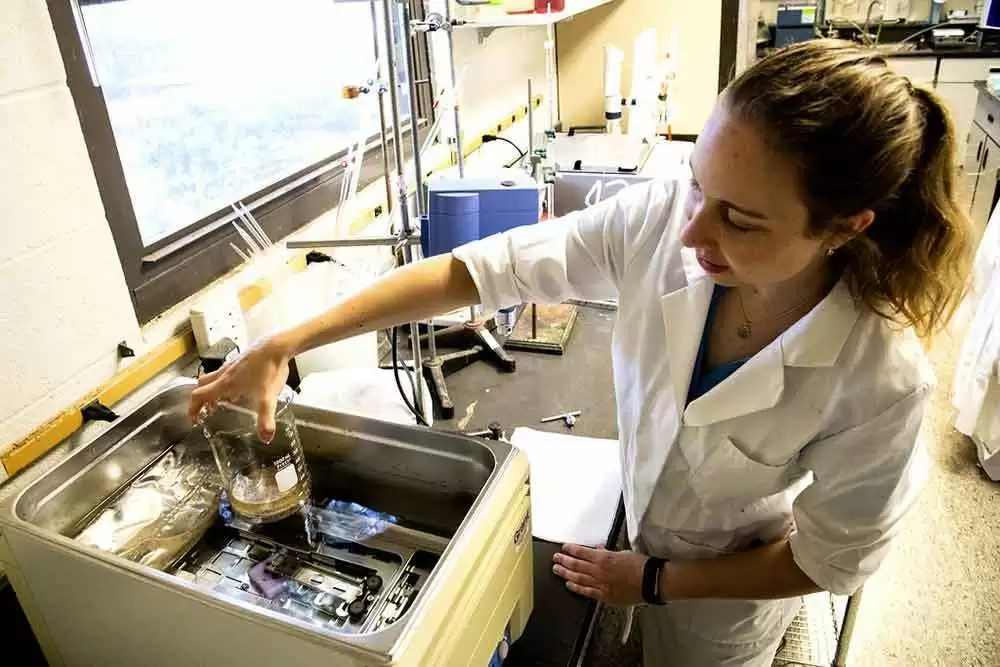
Celiac.com 10/11/2022 - Enzymes that can break down gluten in the stomach before it gets to the gut are a potentially important therapy tool for people with celiac disease. In people with celiac disease, the digestion of gluten creates peptides, including the strongly immunogenic proline-rich 33-mer from wheat α-gliadin, that trigger auto-immune reactions in the gut, along with associated villi damage, when untreated.
Having a therapy that could reduce the abundance of the 33-mer in the small intestine could be very helpful to many people with celiac disease. Neprosin is the latest candidate. A team of researchers recently set out to test a glutamate-class prolyl-endopeptidase for celiac disease therapy.
Celiac.com Sponsor (A12):
The research team included Laura del Amo-Maestro, Soraia R. Mendes, Arturo Rodríguez-Banqueri, Laura Garzon-Flores, Marina Girbal, María José Rodríguez-Lagunas, Tibisay Guevara, Àngels Franch, Francisco J. Pérez-Cano, Ulrich Eckhard & F. Xavier Gomis-Rüth. They are variously affiliated with the Proteolysis Laboratory at the Department of Structural Biology, Molecular Biology Institute of Barcelona (CSIC), Barcelona Science Park in Barcelona, Catalonia, Spain; the Section of Physiology; Department of Biochemistry and Physiology; Faculty of Pharmacy and Food Science, University of Barcelona, Barcelona, Catalonia, Spain; and the Research Institute of Nutrition and Food Safety (INSA-UB), University of Barcelona in Barcelona, Catalonia, Spain.
Neprosin from the pitcher plant is a reported prolyl endopeptidase. As part of their effort, the team produced recombinant neprosin, along with several mutants, and revealed that full-length neprosin is a zymogen, which is self-activated at gastric pH by the release of an all-β pro-domain via a pH-switch mechanism featuring a lysine plug.
The team describes the catalytic domain, in which the action occurs, as an atypical 7+8-stranded β-sandwich, with an extensive active-site cleft holding an unprecedented pair of catalytic glutamates.
The researchers found that neprosin quickly and effectively breaks down both gliadin and the 33-mer in vitro under gastric conditions. The action can be reversibly inactivated above pH 5. Moreover, administering gliadin and the neprosin zymogen together at the ratio 500:1 reduces the abundance of the 33-mer in the small intestine of mice by up to 90%.
A 90% reduction in the 33-mer means that a substantial reduction in the ability of the protein to trigger an immune response in people with celiac disease.
Neprosin therefore represents a family of eukaryotic glutamate endopeptidases that meets the parameters for an effective therapeutic glutenase.
The development of effective therapeutic glutenase products remains a top priority for many researchers, with the potential to benefit huge numbers of people with celiac disease, many of whom are subject to accidental gluten ingestion on a regular basis.
Read more in Nature Communications volume 13, Article number: 4446 (2022)










Recommended Comments
Create an account or sign in to comment
You need to be a member in order to leave a comment
Create an account
Sign up for a new account in our community. It's easy!
Register a new accountSign in
Already have an account? Sign in here.
Sign In Now